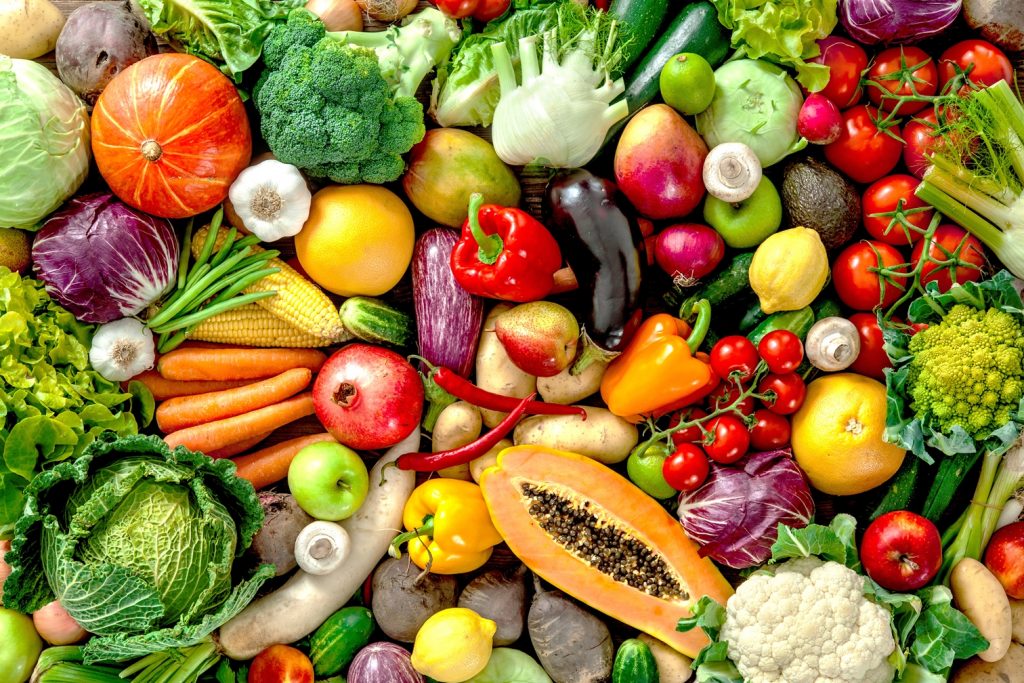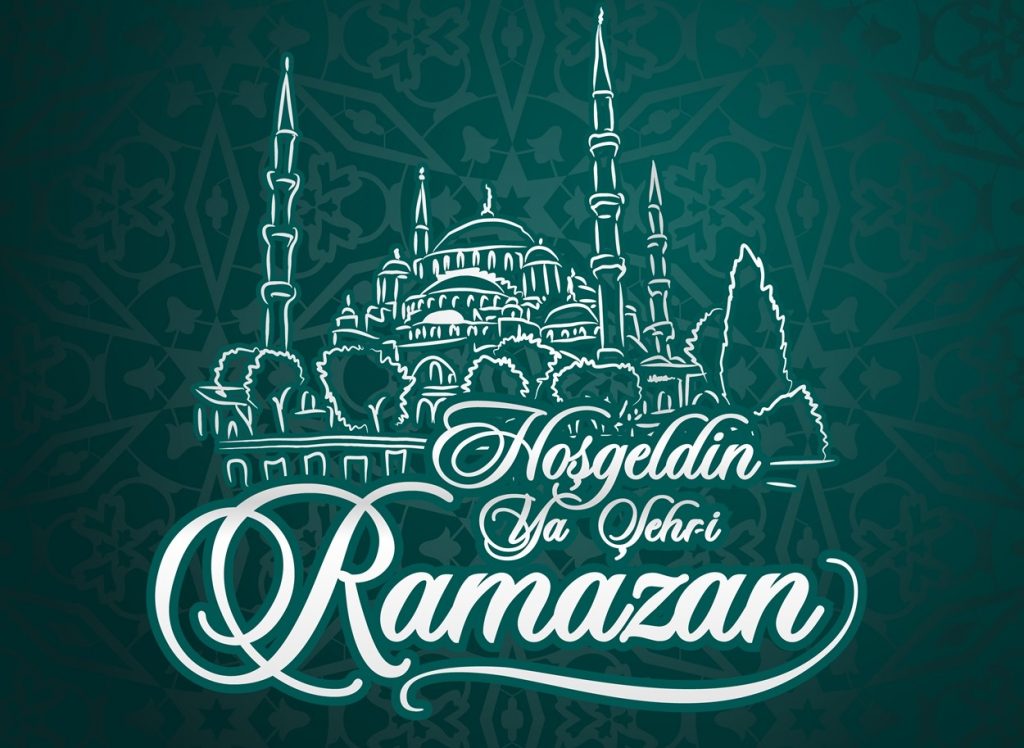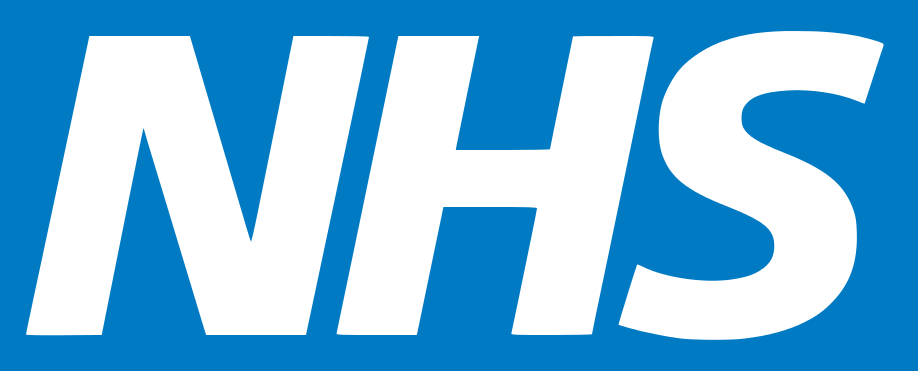Yesterday was the first day of fasting for Muslims in Turkey and the Balkans. Today, the rest of the Muslim world joins them. The countries’ start dates vary by the way they follow the lunar calendar, with some waiting for their top Islamic clerics to see the crescent part of a new moon, which signals the start of a new month.
Ramazan is the holiest time of the year for Muslims, who are not permitted to eat or drink anything during the hours of sunrise and sunset. This is hardest for those living in the northern hemisphere with long hot summer days. Muslims see this time as a period of spiritual cleansing and replenishment, and there are also lots of benefits for the body too.
Fasting is one of the five pillars of Islam. The other four are your declaration of faith, doing five daily prayers, given charity or zakat, and performing a haj (pilgrimage) to Mecca. By abstaining from eating and drinking during the day, Muslims can focus on their spiritual existence and connection to God, and also seek forgiveness and atone for their sins. Muslims use this time in particular to express gratitude for their various blessings, while also being more conscious of those in need.
While fasting is obligatory for Muslims during this holy month of Ramazan, Islam also sets out exemptions for those who are ill, need regular medicine during the day, are children (not yet reached puberty), or pregnant or breastfeeding women.
For those are who fasting, it’s important to be aware of how your body will behave when you fast and to adhere to a healthy diet throughout this period. The NHS, in consultation with Islamic advisors, has published extensive guidelines to help those new to fasting. It explains how the body behaves when you start to fast and offers important dietary tips:
What happens to your body when you fast
The changes that happen in the body during a fast depend on the length of the continuous fast.
The body enters into a fasting state eight hours or so after the last meal, when the gut finishes absorbing nutrients from the food.
In the normal state, body glucose, which is stored in the liver and muscles, is the body’s main source of energy. During a fast, this store of glucose is used up first to provide energy. Later in the fast, once the glucose runs out, fat becomes the next source of energy for the body.
With a prolonged fast of many days or weeks, the body starts using protein and breaking down protein for energy. This is the technical description of what’s commonly known as “starvation”.
“You are unlikely to reach the starvation stage during Ramadan, because the fast is broken daily,” says Dr Razeen Mahroof, a consultant from Oxford.
Gentle transition from glucose to fat
As the Ramadan fast only lasts from dawn till dusk, the body’s energy can be replaced in the pre-dawn and dusk meals. This provides a gentle transition from using glucose as the main source of energy to using fat, and prevents the breakdown of muscle for protein.
The use of fat for energy helps weight loss. It preserves the muscles and eventually reduces your cholesterol level. In addition, weight loss results in better control of diabetes and reduces blood pressure.
After a few days of the fast, higher levels of endorphins appear in the blood, making you more alert and giving an overall feeling of general mental wellbeing.
A balanced food and fluid intake is important between fasts. The kidneys are very efficient at maintaining the body’s water and salts, but these can be lost through sweating.
To prevent muscle breakdown, meals must contain enough energy food, such as carbohydrates and some fat.
How to fast safely during Ramadan
The way to approach your diet during fasting is similar to the way you should be eating outside Ramadan. You should have a balanced diet, with the right proportion of carbs, fat and protein.
If you’re not careful, food eaten during the pre-dawn and dusk meals can cause some weight gain.
Dr Mahroof recommends approaching the fast with discipline, otherwise an opportunity to lose weight and be healthier could be wasted.
“The underlying message behind Ramadan is self-discipline and self-control,” he says. “This shouldn’t fall apart at the end of the day.”
Aim for a balanced diet
Those observing the fast should have at least two meals a day: the pre-dawn meal (Suhoor) and a meal at dusk (Iftar). Dr Mahroof says your food intake should be simple and not differ too much from your normal diet. It should contain foods from all the major food groups:
- fruit and vegetables
- bread, cereals and potatoes
- meat, fish or alternatives
- milk and dairy foods
- foods containing fat and sugar

Try to limit the amount of sugary foods you eat and instead include healthier sources of carbohydrate in your diet, such as wholegrains, potatoes, vegetables, fruits, legumes, and lower fat dairy products.
Foods high in fibre can help to keep your bowels healthy and add bulk to your meal, helping you to feel full. These include:
- fruit
- vegetables
- pulses
- starchy foods (especially wholegrain varieties)
It’s also worth avoiding caffeine-based drinks such as tea, coffee and cola. Caffeine is a diuretic and stimulates faster water loss through urination.
Wholesome foods
Suhoor, the pre-dawn meal, should be a wholesome, moderate meal that’s filling and provides enough energy for many hours.
‘Slow digesting food like pitta bread, salad, cereal (especially oats) or toast provide a constant release of energy,” Dr Mahroof says.
“It’s important to have some fluids with vitamins, such as fruit juice or fruit. Some people have isotonic drinks to replace any lost salts.”
It’s customary for Muslims to break the fast (Iftar) with some dates, in accordance with the Prophetic traditions. Dates will provide a burst of energy. Fruit juices will also have a similar revitalising effect.
Start by drinking plenty of water, which helps rehydration and reduces the chances of overindulgence. Avoid the rich, special dishes that traditionally celebrate the fast.
Foods to avoid
- Deep-fried foods – such as lokma, samosas and fried dumplings
- High-sugar and high-fat foods – including sweets such as baklava and börek
- High-fat cooked foods – such as döner kebabs and greasy pastries
Avoid excessive oil and frying when cooking food for ramazan. Grilling or baking are far healthier cooking methods. If you must fry, try shallow frying.
Healthy alternatives
- Baked or grilled meat and chicken
- Homemade pastry using just a single layer
- Milk-based sweets and puddings, such as sütlaç and muhallebi (as shown below)
For more tips, visit the NHS website.
Main green Ramazan illustration at top © SubhanBaghirov / iStock






